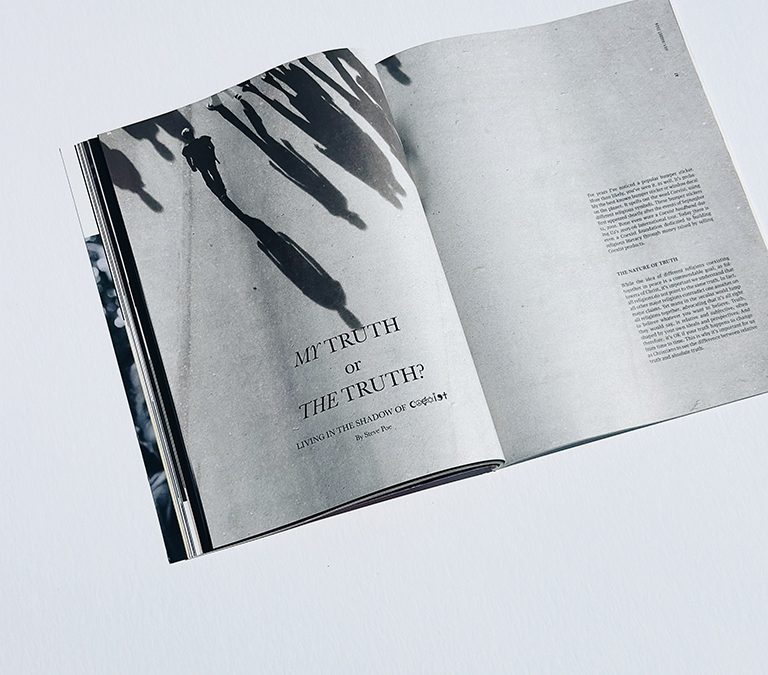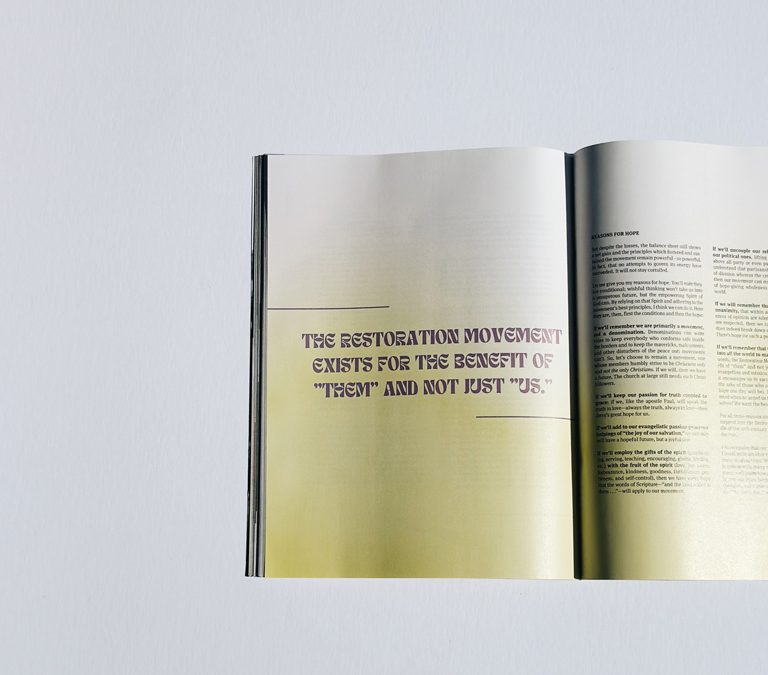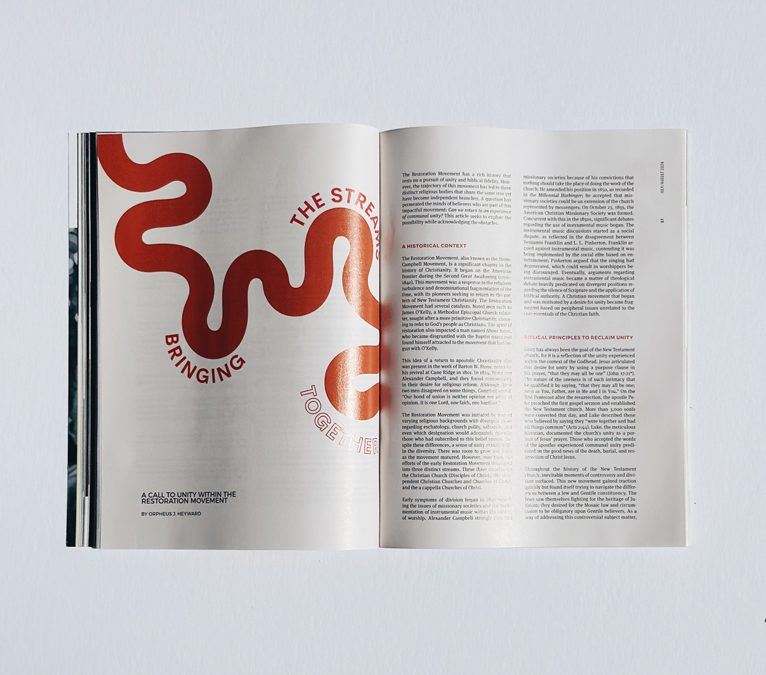By Leigh Mackenzie
“So . . . are you pregnant yet?”
Icy tension enveloped the room as once-lively conversation quickly turned dark. Suddenly a woman who was quietly enjoying the festivities became the center of attention. She froze like a deer in a car’s headlights. She fixed her wide, brown eyes on the table in front of her as all other eyes fixed on her.
Family drama is rough, but imagine it as a more public display that is repeated every year—and always directed at the same target. The bully’s sharp tongue even seemed to poison the food. Her barbs scored direct hits on the heart of her victim. The aggressor grew more emboldened with every attack; the one ridiculed became increasingly numb to the attacks—she just sank ever lower. She never once stood up for herself.
No one in the room seemed inclined to defend her, either.
This is the story of a hero, Hannah, a woman lauded for drawing close to God in the midst of desperate personal circumstances. Hannah depended on prayer for vindication against her critics. She dealt bravely with disappointment and sacrificed her God-given gift back to the One who gave it.
* * * * *
Hannah’s life began near the end of the era of judges. “In those days Israel had no king; everyone did as they saw fit” (Judges 21:25).
Every year, Hannah’s Levite husband dutifully brought the family to Shiloh to sacrifice, feast, and worship God. Although Elkanah loved Hannah dearly, there were two major problems: (1) Hannah’s barrenness, and (2) Peninnah, his jealous and competitive second wife—one of the meanest women of the Bible.
Her prodigious childbearing ability produced progeny and heirs, yet Peninnah (Hebrew for “pearl”) remained unloved. Though she seemingly had a lustrous and beautiful life through all the children, her soul’s core was hard sand. Armed with a penchant for knowing which words wounded worst, Peninnah unrelentingly launched verbal arrows dipped in poison at Hannah.
The drama unfolded yearly among the throngs at feast time. Along with the fragrance of roast lamb and bitter herbs, the stench of malice also was palpable. Peninnah attempted to diminish and provoke her rival, Hannah—Elkanah’s favorite wife—every time they went to worship God (1 Samuel 1:6-7). That’s like making a girl cry on the way to church.
Not cool, Peninnah. Not cool at all.
Remarkably, Hannah never responded to the taunts.
As head of the family, Elkanah served his second wife and children first, yet honored his beloved with a double portion of the best meat. Beleaguered and harassed, Hannah refused to eat. Elkanah pleaded with her; he asked Hannah if his love weren’t worth more than 10 sons to her, but he knew the answer. In ancient Israel, her worth was determined by the number of children produced; a husband’s love couldn’t counteract the shame of childlessness.
Publicly disgraced, Hannah lifted her anguish to God. Though Hannah was dismayed and discouraged, she rose to become a hero through her godly example of prayer, dedication, and sacrifice.
Prayer Is Heroic
“The prayer of a righteous person is powerful and effective” (James 5:16).
Have you ever been so desperate and so broken before God that you ran out of words to pray? In the bitterness of your soul, have you begged God for relief from the insurmountable odds stacked against you? If so, then you might understand Hannah’s anguish and grief as she entered the Lord’s temple.
Shame and the sense of not measuring up dishearten the spirit and diminish self-worth. If it’s not infertility, it could be family background, racial heritage, education level, mental health issues, a learning disability, childhood trauma, socioeconomic status, or physical appearance that unfairly bring a sense of inferiority and make one a target of condemnation. The failure to live up to expectations even when it isn’t humanly possible can be soul-killing.
Throughout the Bible, we encounter other desperate women who are humiliated by infertility—women like Sarai, Rebekah, Rachel, and Samson’s mother. After the miraculous conception of John the Baptist, Elizabeth said, “The Lord has . . . taken away my disgrace among the people” (Luke 1:25).
Hannah’s biggest issue wasn’t infertility but, rather, a culture that defined women by what their bodies produced. No child equaled no worth. That deep sense of “less than” stemmed from a value judgment in man’s economy, not God’s. Perhaps the hardest part for Hannah was being defined by the expectations of those around her without the ability to meet those expectations.
The criticism levied by Peninnah was correct: Hannah was infertile. Elkanah comforted Hannah with extra food and love, but seeing the disapproving faces of people at other tables nodding and agreeing with the insults brought home “the truth” in that culture: childless wives are shameful disgraces.
Hannah—on her own and with no earthly way to defend herself—lifted a heavy, prayer-filled shield of faith by calling out to God in the bitterness of her heart. Though her womb was closed, she trusted God and she knew which battlefield had the most power for her fight.
Her fervent, dedicated prayer produced miraculous results. Hannah prayed with deep faith—and the Lord heard her.
Dedication Is Heroic
Have you ever been in a desperate situation and lobbed up a “quick prayer” only to immediately seek an earthly answer? At a time when people were doing what was right in their own eyes, our hero courageously trusted and committed to what was righteous before God.
Instead of arguing, Hannah left the family table, her misery and anguish made obvious by her tears as she crossed the threshold into the house of God. She was resolved and committed to pouring out every bit of her pain before the Lord, for she knew dedicated praying was her only option. She had no one but God for counsel. Perhaps she confessed the distresses of her relationship, the woes of childlessness, and personal frustrations along with all the disappointment in her life. Without wavering or waning, she sought the Ancient of Days and confided every secret thing before his throne, entrusting her heart and future to Yahweh.
With her gaze fixed somewhere between heaven and earth, Hannah promised God if he would give her the gift of a son, she would devote herself to raising him as a Nazirite to serve all the days of his life. Eli the high priest thought she was inebriated from the feast, for as she prayed from her heart, her mouth formed voiceless words. Eli approached and rebuked her. When Hannah explained that she was “deeply troubled” but not drunk, Eli responded, “Go in peace, and may the God of Israel grant you what you have asked of him” (1 Samuel 1:17).
Hannah’s countenance changed after her prayer time and Eli’s blessing. She soon conceived a child with Elkanah and gave birth to a baby boy, naming him Samuel . . .“because I asked the Lord for him” (1 Samuel 1:20).
She promised God to bring the boy back to the temple to minister under Eli in Shiloh.
Sacrifice Is Heroic
Have you ever trusted God by remaining in a difficult, unchanging situation and by sacrificing your own comforts and wants? The courage to remain in such a cultural environment is extraordinarily heroic. Hannah’s story showcases three distinct sacrifices—that is, three things she offered up to God: her comfort, her words, and her own son.
First, Hannah didn’t run from the situation, escape, or demand something different to make herself more comfortable. God didn’t take away the difficult Peninnah or change the values that defined Hannah’s pain. Her onerous circumstances remained, and yet Hannah had the grit and grace to bravely stand her ground. Though her comfort was sacrificed, she exhibited godly composure in the presence of cruelty.
Second, though Hannah was bullied and criticized, she didn’t fight back or try to win the war of words. It should also be noted, Hannah didn’t attempt to numb the pain, strike out at others, or displace her hurt and fear. Instead, she came before God and stayed until the blessing was realized.
Hannah, our “hero,” displayed a very Christlike characteristic in not defending herself before her accuser. Though she was “oppressed and afflicted” by her tormenter, she remained silent, never opening her mouth except to pray. (See Isaiah 53:7.)
Hannah’s third sacrifice involved the gift she was given: her son. She declared her intention to keep her promise to God after Samuel was born: “I prayed for this child, and the Lord has granted me what I asked of him. So now I give him to the Lord” (1 Samuel 1:27-28). She kept her promise and gave God her son, Samuel, the firstfruits of her womb, and she was later blessed with five more children.
What a gift Samuel became! As a boy, Samuel clearly heard the voice of God. Later, he became a great priest, prophet, and the last ruling judge of the Old Testament as he led a nation gone astray. Hannah’s firstborn anointed the first kings of Israel and was a powerful answer to the prayer and redemptive deliverance of a broken and marginalized woman.
In the end, Hannah’s steadfast prayer, dedication, and sacrifice—coupled with her abundant blessing—served as a solid testimony to the loving-kindness of an all-knowing, all-powerful God.
* * * * *
“Hannah, are you pregnant yet?”
Did that sarcastic, mocking question ever echo again across the banquet space? If so, I imagine Hannah lifting her shining eyes, giving a knowing smile, exuding the peaceful confidence of a woman who trusted in God’s faithfulness, and then answering in a bold but loving manner (to the shock of everyone): “My heart rejoices in the Lord; in the Lord my horn is lifted high. . . . It is not by strength that one prevails” (1 Samuel 2:1, 9). “Dear Peninnah. Indeed, I am pregnant, because I asked the Lord for a son. And God. Heard. Me.”
Prayer is what turns the helpless into heroes. Dedication and perseverance are the turning points in impossible struggles. Trusting and setting aside earthly feelings, emotions, and self-righteous urges is how we place God first in our lives. Where God Almighty reigns, anything is possible.
_ _ _
An avid coffee lover, writer, and podcaster, Leigh Mackenzie resides 28 stories above Goldcoast Chicago with her family and two dogs.





0 Comments